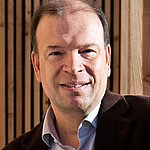The UPLIFT Consortium, coordinated by the Aalborg University (AAU), consists of 16 European organizations that can be grouped as follows: 1 large industries (VFB), 7 SMEs (VTG, Bio-Mi, TECNARO, BIOPLASTECH, ACIB, BBEPP, SIE) and 8 Research institutions (AAU, FZJ, DTU, LUND, HKI, AIMPLAS, UCD, RWTH). There is a strong industrial and commercial involvement in the project which provides pivotal input on plastic polymer blends, their composition, polymerisation, building block specifications and application to create applications based on actual packaging market demand, thanks to the involvement of key players in the recycling industry and members of the industrial advisory board.
UPLIFT

Contact
Aalborg University
Fredrik Bajers Vej 7K,
9220 Aalborg East
Denmark
Aalborg University (AAU) offers education and research within the fields of natural sciences, social sciences, humanities, technical and health science to more than 19.000 (13% international) students. AAU has extended competences in the field of plastic pollution. The university has recently received a large funding to build a new Danish centre for research in marine plastic pollution. AAU is heading the research centre and coordinating the collaboration among 4 Danish universities.
AAU was rated for excellence in the QS-ranking system and has received five stars certifying the world-class position of the university based on cutting-edge facilities and internationally renowned research and teaching faculty. According to the MIT 2018 report, AAU ranked as the 4th best in the world within engineering programs (and number 1 in Europe).
Department of Chemistry and Bioscience does research within a broad field of chemistry and bioscience. Especially the research concerns biotechnological solutions within the biorefining area utilizing agricultural and industrial residues and waste, while combining fundamental biotechnology with bioprocess engineering. There will be 2 research groups working in UPLIFT:
1) the Biorefinery research group (BRG) with a focus on bioprocess technology and bio-conversion of waste streams, development of biorefineries to produce biofuels, green chemicals, biopolymers, enzymes, surfactants, etc., as well as the degradation of recalcitrant compounds such as plastics and pesticides, and 2) researchers from the Centre for Microbial Communities (CMC), whose overall research goal is to provide new fundamental understanding of structure and function of microbial communities in engineered and natural habitats. Main research areas involve systems microbiology, microbiomes, bacterial interactions and relationships, discovery of novel microorganisms and microbial functions, metagenomics, metaproteomics and metabolomics. The Department of Culture and Learning has a social science approach on consumer practices and social acceptance. Especially the research concerns sustainable knowledge systems to provide new insights of societal impact and acceptance and consumer awareness and participation. The research follows a humanities approach, which is of interdisciplinary nature, and based on strong mono-disciplines deeply rooted in critical, analytical, and creative traditions. The basis of all the activities is a focus on relations within and across professions, cultures, societies, and the surrounding world, thus looking into human activities within business, education, social and cultural activities to understand and act towards societal challenges.
Goals
The UPLIFT project will propose a set of disruptive innovations that will tackle the two most important bottlenecks related with the way plastic packaging materials are designed and recycled:
- Development and demonstration of an industrially scalable enzymatic and microbial degradation processes to selectively depolymerize and biochemical upcycle plastic packaging waste materials, which are currently considered unrecyclable. This will include 1) fossil-based non-biodegradable, 2) fossil-based bio-degradable, 3) bio-based non-biodegradable, as well as 4) bio-based biodegradable materials.
- Manufacture at pilot scale of new renewable eco-polymers specifically (eco)-designed for ensuring easier EoL processing. Such eco-polymers will be produced from the recycled monomers from the plastic waste, combined with bio-based building blocks obtained through microbial conversion/fermentation of renewable substrates including plastic hydrolysates, thus increasing the overall yield and efficiency of the process. The focus will be put on materials typically used in F&D packaging and which have a high technical substitution potential towards bio-based plastics in the EU.
Contact

Cristiano Varrone is a curious and application-oriented researcher with more than 15 years of experience in fermentation and environmental biotechnology, obtained in different countries, both in academic and non-academic environment. He holds a M.Sc. in Natural Sciences (cum laude) from the Sapienza University of Rome and a PhD in Environmental Engineering from the Harbin Institute of Technology (HIT), China. He worked 8 years at the Italian National Agency for New Technology, Energy and Sustainable Development (ENEA), whose main mission is to serve as technology transfer facilitator and bridge between academia and industry. He further collaborated with the Sapienza University and worked as Postdoc in Fermentation Technology at the Aalborg University and at DTU, where he gained further expertise in Bioprocess Engineering. This rather broad background allowed him to develop an interdisciplinary research with a holistic approach.
His overall focus is on the development of biorefineries and the valorisation of various waste streams into higher-value products, through the optimization of microbial conversion processes. He has broad experience in (eco)engineering and enrichment of microbial mixed cultures for the production of biofuels, green chemicals and biopolymers, as well as the biodegradation of recalcitrant compounds such as pesticides and plastics. His specific research interest is in the development of robust bioprocesses and Defined Mixed Cultures for practical (environmental/industrial) applications.
Focus Areas:
- Fermentation Technologies
- Biorefineries
- Eco-engineering of Mixed Microbial Cultures
- Biodegradation of plastics and pesticides
- Second Generation Biofuels and Green Chemicals
- Statistical optimization of process parameters

Prof. Georg Gübitz
University of Natural Resources and Life Sciences, Vienna
Professor, Head of Department & Institute
guebitz@boku.ac.at
Prof. Dr Georg M. Guebitz obtained his PhD in Biotechnology from TU-Graz in 1996. As an Erwin-Schroedinger Fellow, he investigated enzymatic processes for lignocellulose processing at University of British Columbia, Canada from 1996 – 98. Since 2013, he holds a full professorship at University of Natural Resources and Life Sciences, Vienna and is the head of the Department of Agrobiotechnology and of the Institute of Environmental Biotechnology with focus on biotechnical functionalisation and processing of materials. He has participated in > 30 European projects related to polymer processing and coordinated 9 out of which. In parallel, he cooperated with industry and research centres such as ACIB. Gübitz has published more than 350 scientific papers in peer reviewed journals, he holds 16 patents and is editor of two journals.

